After more setbacks, Charles now had a new plan.
His host Frank Wyndham had arranged for a
boat to put in at Charmouth on the night of September 22, which would carry the
Charles and Wilmot to a waiting ship bound for France.
Wyndham’s first idea had been that the king’s party should
travel to Lyme during the day and then go to Charmouth after dark. But Captain Ellesden had pointed out that
there would be a fair in Lyme that Monday, and though a crowd of people might
make one more stranger less obvious, it was likely that the recent proclamation
of a reward for the king’s capture would be repeated at the fair. It would be safer for Charles and Wilmot to
go directly to Charmouth and wait at the inn there until the boat came in.
But, as Anne Wyndham wrote, “Necessary it was that his
majesty and all his attendants (contrary to the use of travellers) should sit
up all the night at the inn at Charmouth; that they ought to have command of
the house to go in and out at pleasure, the tide not serving till twelve at
night.”
Charles and Wilmot were now old hands at cooking up
ingenious schemes. On Saturday,
September 20, “Henry Peters (Colonel Wyndham’s servant) was sent to Charmouth
inn, who inviting the hostess to drink a glass of wine, told her that he served
a very gallant master, who had long most affectionately loved a lady in Devon;
and had the happiness to be well loved by her; and though her equal in birth
and fortune, yet so unequal was his fate, that by no means could he obtain her
friends’ consent, and therefore it was agreed between them that he should carry
her thence and marry her among his own allies; and for this purpose his master
had sent him to desire her to keep the best chambers for him, intending to be
at her house upon the two and twentieth day of that month in the evening, where
he resolved not to lodge, but only to refresh himself and friends, and so
travel on either that night or very early next morning. With this love story (thus contrived and
acted), together with a present delivered by Peters from his master, the
hostess was so well pleased, that she promised him her house and servants
should be at his master’s command.”
Charmouth, a village near Lyme on the Dorset coast, was
about 28 miles southwest of Trent.
Charles needed a way to get there without drawing suspicion.
Riding with Jane Lane in the persona of her
servant Will Jackson had successfully allowed him to hide in plain sight before,
but unfortunately, Jane and her cousin Henry Lascelles were now gone.
Fortunately, Lady Wyndham’s niece Juliana
Coningsby was at the Wyndhams’ house, and she was cast in the role of the
runaway bride, with Wilmot as her groom, and they would ride with the king when
the time came.
 |
| St. Andrews Church from the window of Charles's room at Trent Manor |
But the day of departure was not yet, so Charles remained in
Lady Wyndham’s rooms at Trent Manor.
The
beautiful medieval church of St. Andrews stands only a few hundred feet from
the manor house, and its steeple is clearly visible from the room where Charles
was staying.
As he recounted to Samuel
Pepys years later, “One day dureing my stay at Trent I heareing the Bells ring
(the church being hard by Frank Wyndham’s house) and seeing a Company gott
together in the Church yard, I sent downe the maid of the House (who knew me)
to enquire what the matter was. Who returning, came up and told me; that there
was a Rogue a Trooper come out of Cromwells Army that was telling the people
that he had killed me, and that that was my Buffe-Coate which he had then
on.
Upon which most of the Village being
Fanaticks, they were ringing the Bells and makeing a Bone-fyer for joy of it.”
 |
A buff coat - Victoria and Albert Museum
Made of suede and worn as protection by soldiers, for hunting, etc. |
 |
The Rose and Crown, Trent
|
The king’s reaction to this horrifying story was, “Alas,
poor people.”
The celebration at his
supposed death must have been sobering, and increased his sense that he was far
from home free.
Also only a stone’s throw from Trent Manor was – and is –the Rose and Crown, an inn and tavern that was built as lodging for the men building the steeple of the church in the fourteenth century.
It would certainly have been a gathering place for the locals and any visitors, including the many Parliamentary soldiers in the area and in nearby Sherborne, and that Saturday night, after the rowdy gathering outside the church, was particularly dangerous.
(Heather, the present landlady of the Rose and Crown, told Alice and me that Royalist troopers – ghosts – still gather in the pub at night. They’re friendly, she says, but still, she doesn’t go downstairs when she senses they’re there.)
 |
| The back of the Rose and Crown, Trent |
 |
Heather, the landlady at the Rose and Crown,
who introduced us to Mrs. Hohler at the manor house |
 |
Rose and Crown
the old part, where the ghosts sit
Dinner at the Rose and Crown
one of the best meals I've had anywhere!
|
 |
| Steps at church in Trent |
But not all the neighbors were enemies.
Anne Wyndham related that “Upon the Sunday
morning after the king came to Trent, a tailor of the parish informed the
colonel that the zealots (which swarmed in that place) discoursed over night
that persons of quality were hid in his house; and that they intended to search
and seize them; and therefore he desired the colonel (if any such there were)
to convey them thence, to avoid surprisal.
The colonel (rewarding the good man for his care and kindness toward
himself and family) told him that his kinsman (meaning the Lord Wilmot) was not
private, but public in his house (for so his lordship pleased to be), and that
he believed he would show himself in the church at the time of prayers.
 |
| St. Andrew's Church, Trent |
 |
| Chest at St. Andrew's Church, Trent - note date of 1629 |
“When the honest fellow was gone, the colonel acquaints the
king what passed between himself and the tailor, and withal besought his
majesty to persuade the Lord Wilmot to accompany him to church, thinking by
this means, not only to lessen the jealousy, but also to gain the good opinion
of some of the fanaticks, [as Wyndham] … seldom came to that place since
faction and rebellion had justled out and kept possession against peace and
religion.”
 |
| St. Andrew's Church, Trent |
“…These reasons, joined with his majesty’s command,
prevailed with his lordship; and (though he thought it a bold adventure, yet)
it not only allayed the fury, but also took out the very sting of those wasps,
insomuch that they, who the last night talked of nothing but searching, began
now to say that Cromwell’s late success against the king had made the colonel a
convert.”
 |
| Side of carved pew, St. Andrew's Church, Trent |
Apparently the ruse worked.
No one came to search Trent Manor, and later, “all being now quiet about
the home, the colonel’s lady (under pretence of a visit) goes over to Sherborn
to hear what news there was abroad of the king. And towards evening, at her
return, a troop of horse clapt privately into the town. This silent way of
entering their quarters, in so triumphant a time, gave a strong alarm to this
careful lady whose thoughts were much troubled concerning her royal guest.
A stop she made to hearken out what brought
them thither, and whither they were bound, but not one grain of intelligence
could be procured by the most industrious enquiry.
When she came home, she gave his majesty an
account of many stories, which like flying clouds were blown about by the
breath of the people, striving to cover her trouble with the veil of
cheerfulness.
But the king … was earnest
to know the cause of her discomposure, and to satisfy his majesty’s
importunity, she gave him a full relation of the troop at Sherborn, at which
his majesty laughed most heartily, as if he had not been in the least
concerned.”
“Yet upon a serious debate of the matter, the colonel and
his lady supplicated the king to take a view of his privy chamber into which he
was persuaded to enter, but came presently forth again, much pleased that, upon
the least approach of danger, he could thither retreat with an assurance of
security.
 |
View out of closet with priest hole
Trent Manor |
 |
| Detail of wood paneling at Trent Manor |
“All that night the colonel kept strict watch in his house,
and was the more vigilant because he understood from Sherborn that the troop
intended not to quarter there, but only to refresh themselves and march. And
accordingly (not so much as looking toward Trent) about two of the clock the
next morning, they removed toward the sea coast. This fear being over, the king rested all the
time of his stay at Trent, without so much as the apprehension of a
disturbance.”


















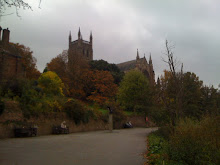
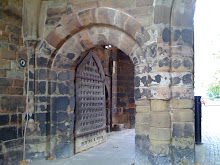



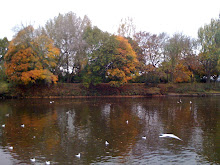
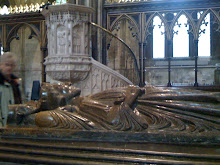
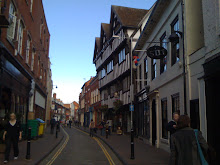

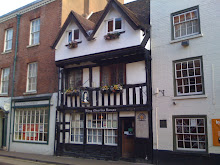
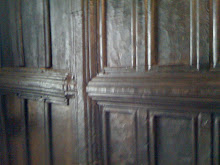
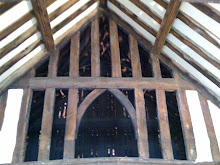





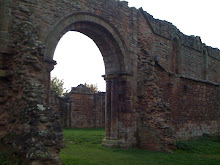




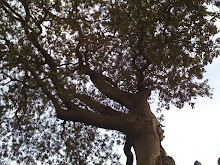



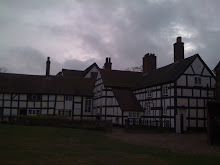

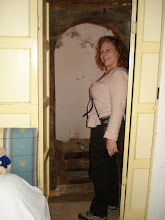
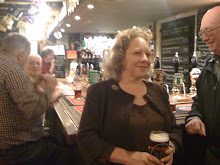
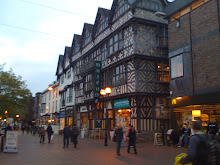
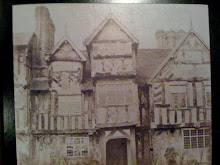


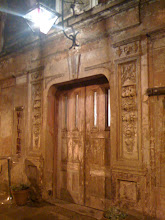
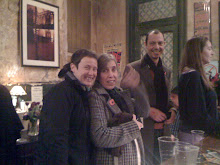


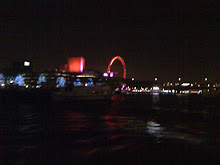

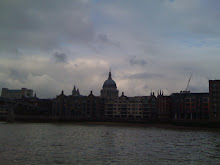
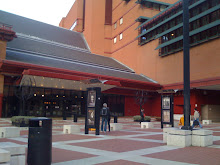

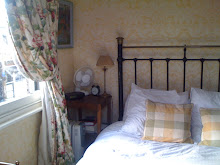






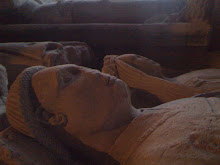
Yes, isn't the Rose and Crown a lovely country pub: friendly folk and excellent cooking!
ReplyDeleteWhen Heather described their ghosts she described the typical temperature drop but made a point that they are gentlemen who she feels look out for her safety.
Alice
Very thoughtful blog
ReplyDelete